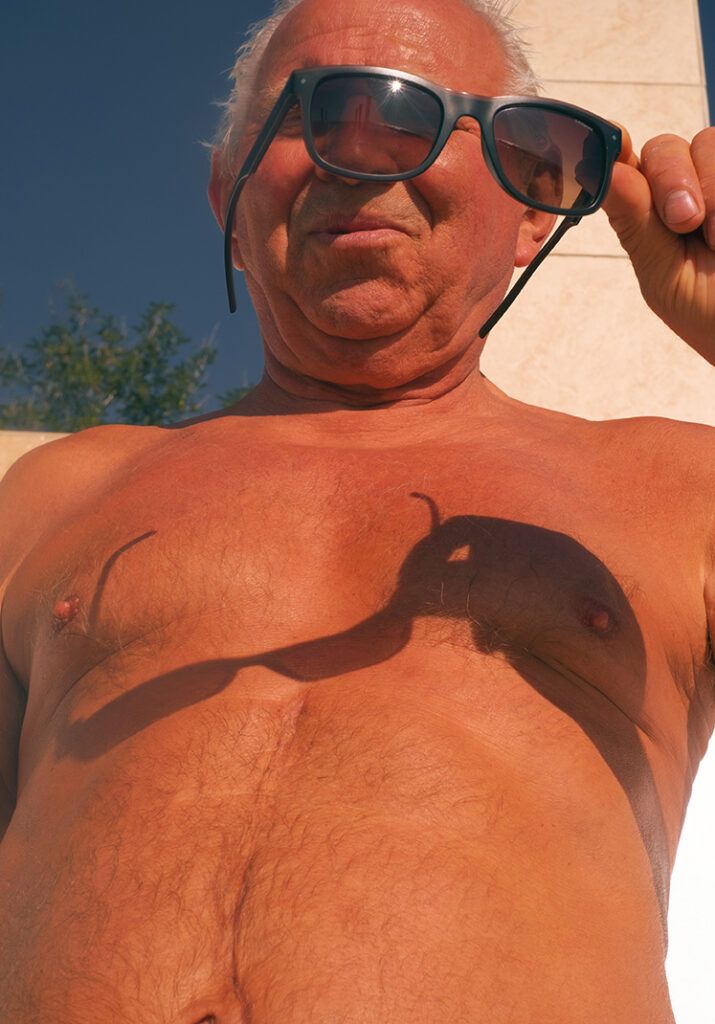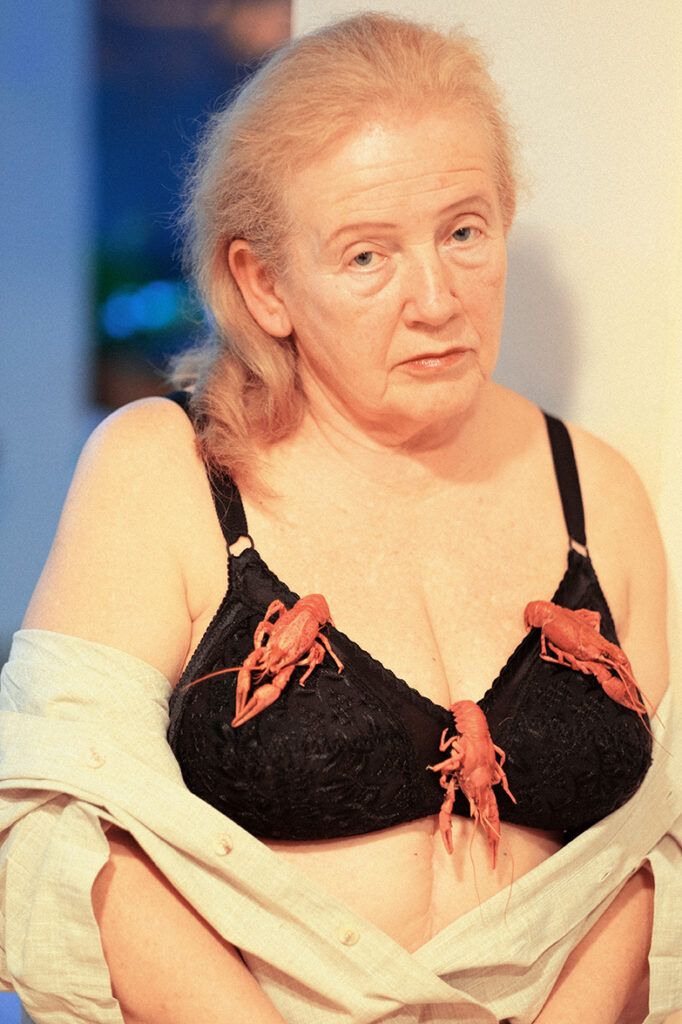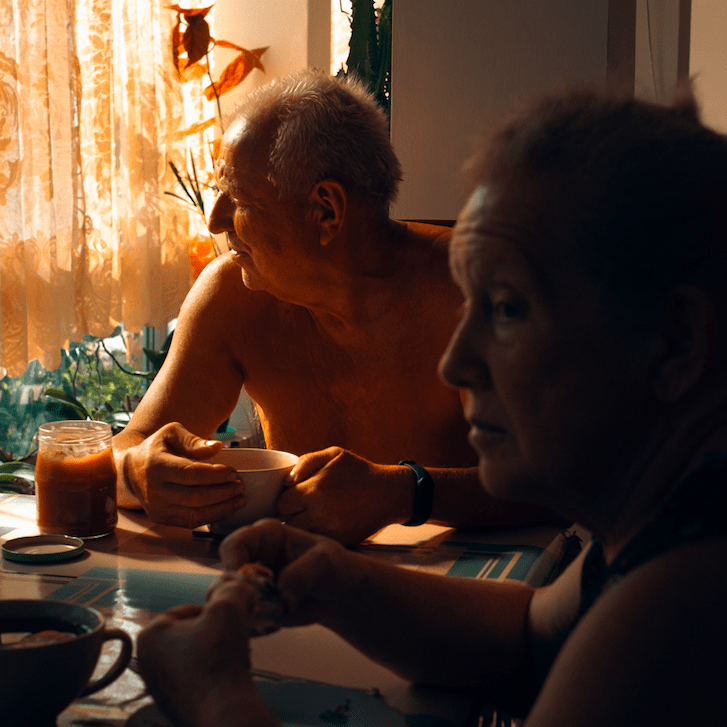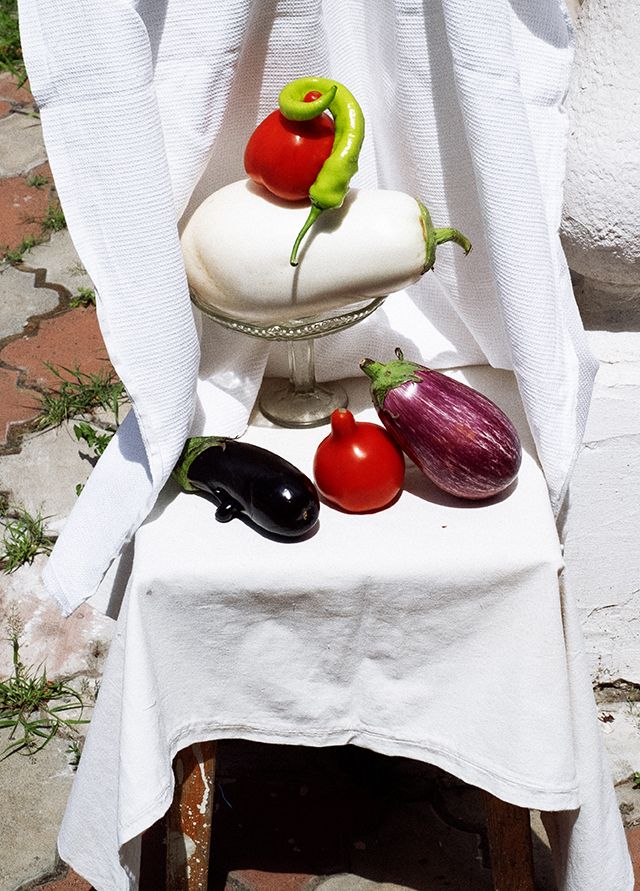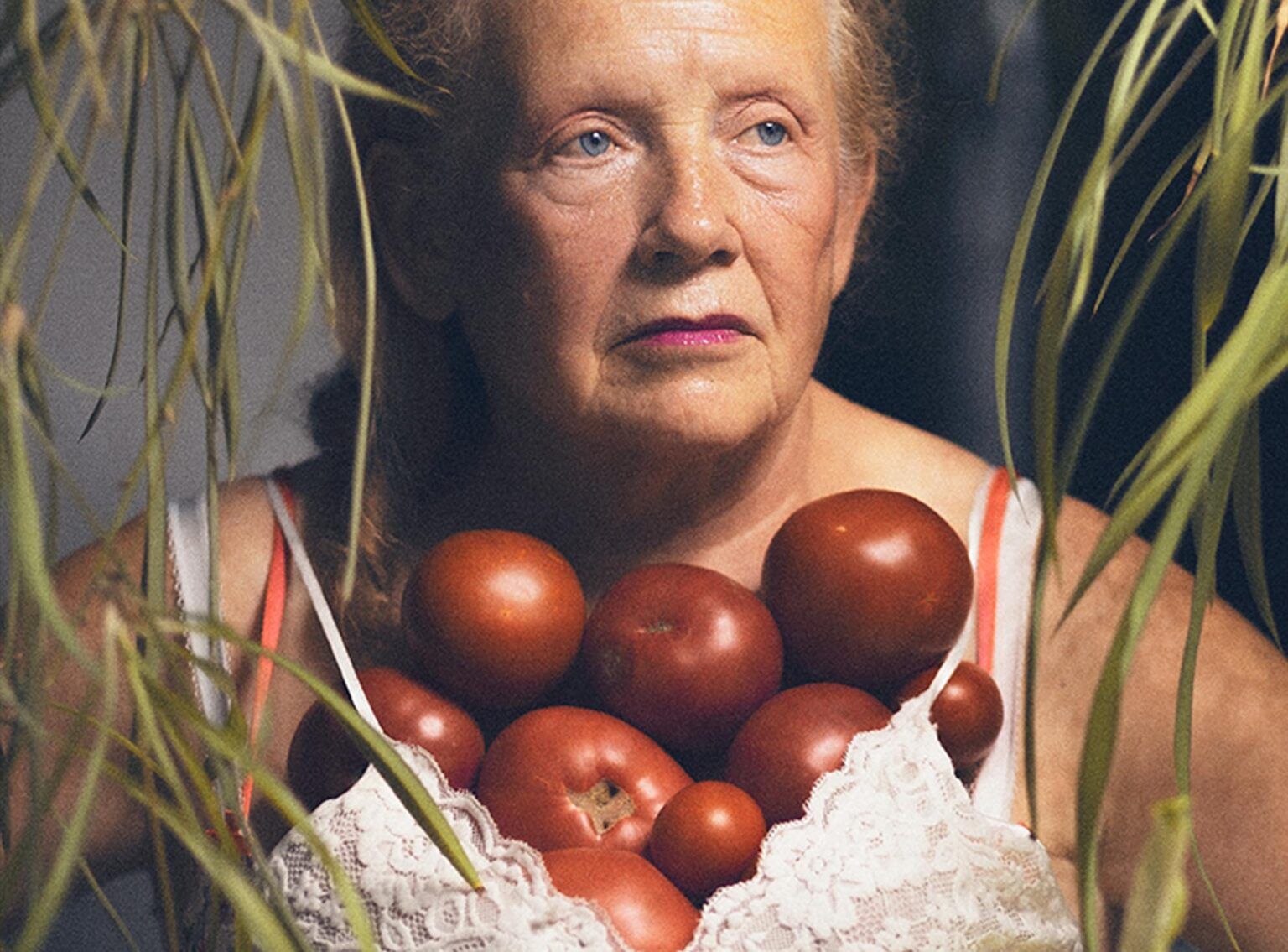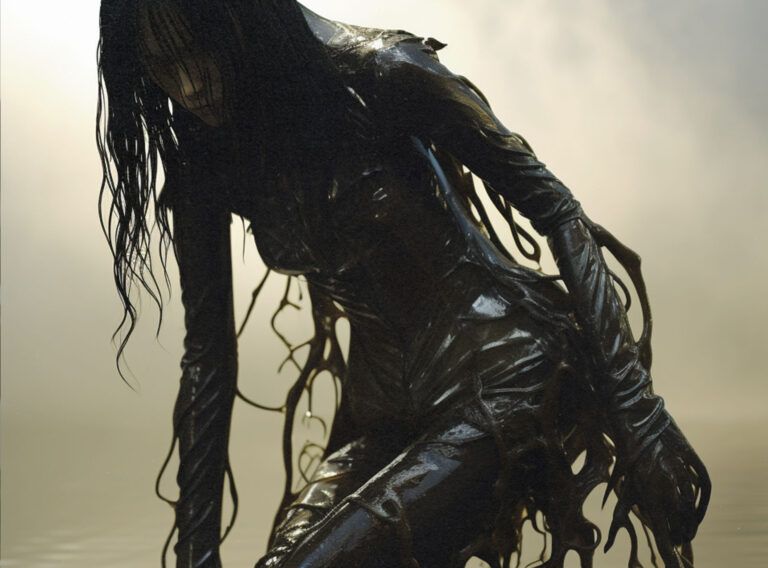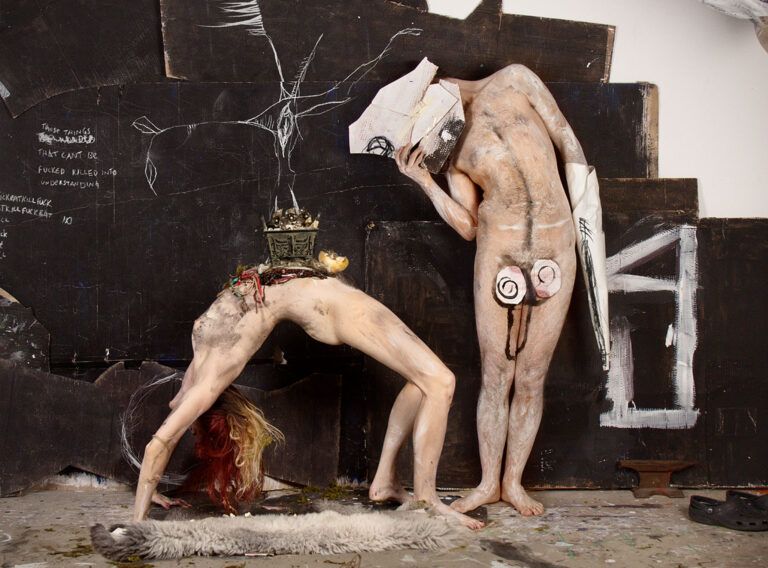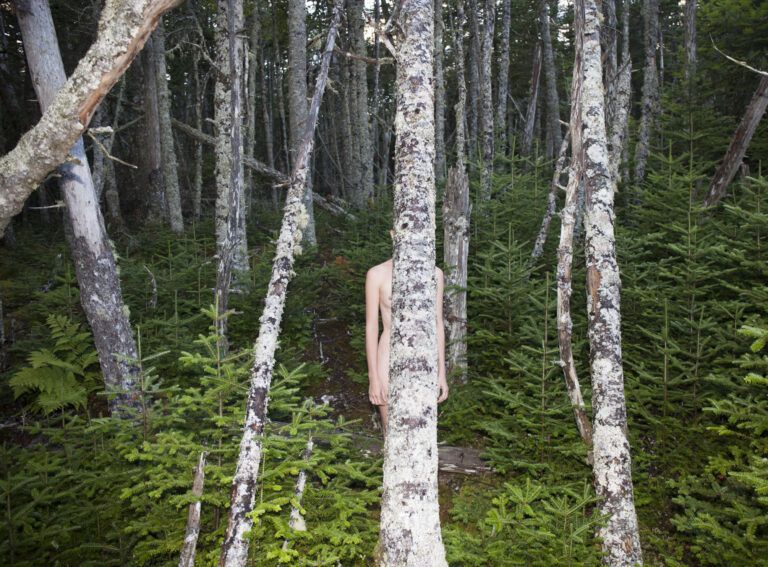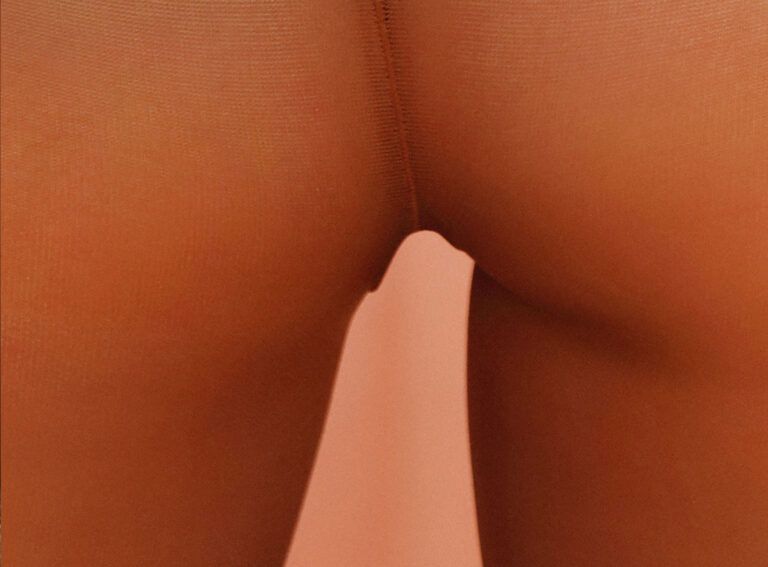‘Meat, Fish and Aubergine Caviar’ is a project about my parents’ life in Odessa, Ukraine. The city on the Black Sea coast that traditionally has had everything in abundance: fish, sun, exposed flesh and of course… delicious aubergine caviar. The city where the real overlaps with the surreal and everyone was born to shine: either in the bright rays of the beautiful sandy beaches or under the charming street lamps of Primorsky boulevard, right where you can find the famous Sergey Eisenstein’s staircase from his 1925 silent film ‘Battleship Potemkin’. The city where you leisurely and unhurriedly walk in your white trousers along the shore, because “it’s almost Rio de Janeiro” – as claimed by the protagonist of “The Twelve Chairs” (1928) – a classic satirical novel by the Odesan authors Ilf and Petrov.
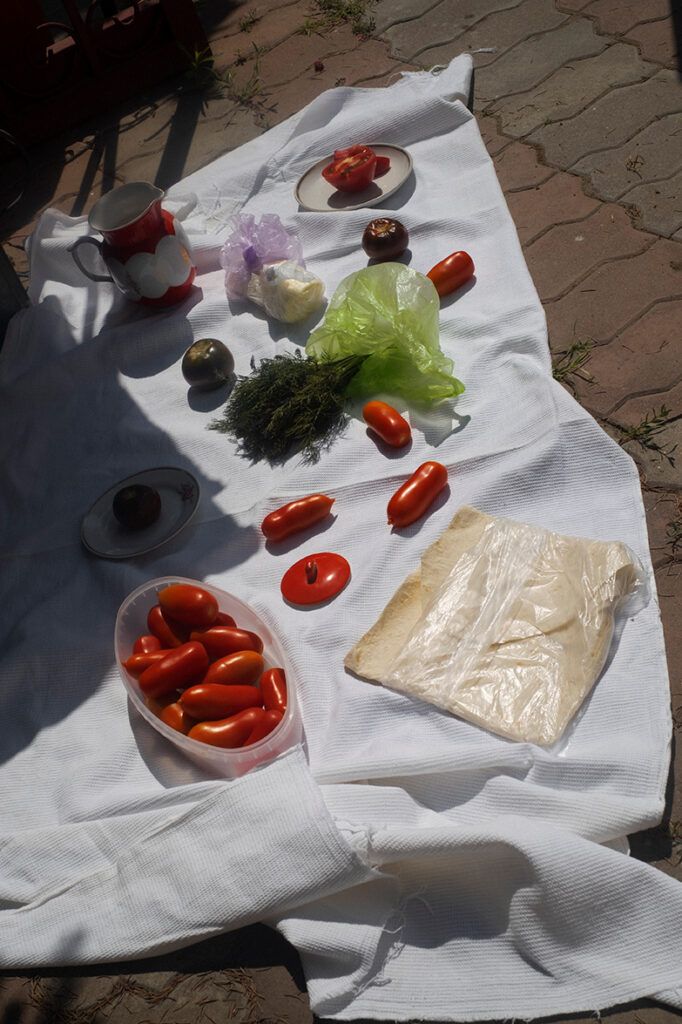
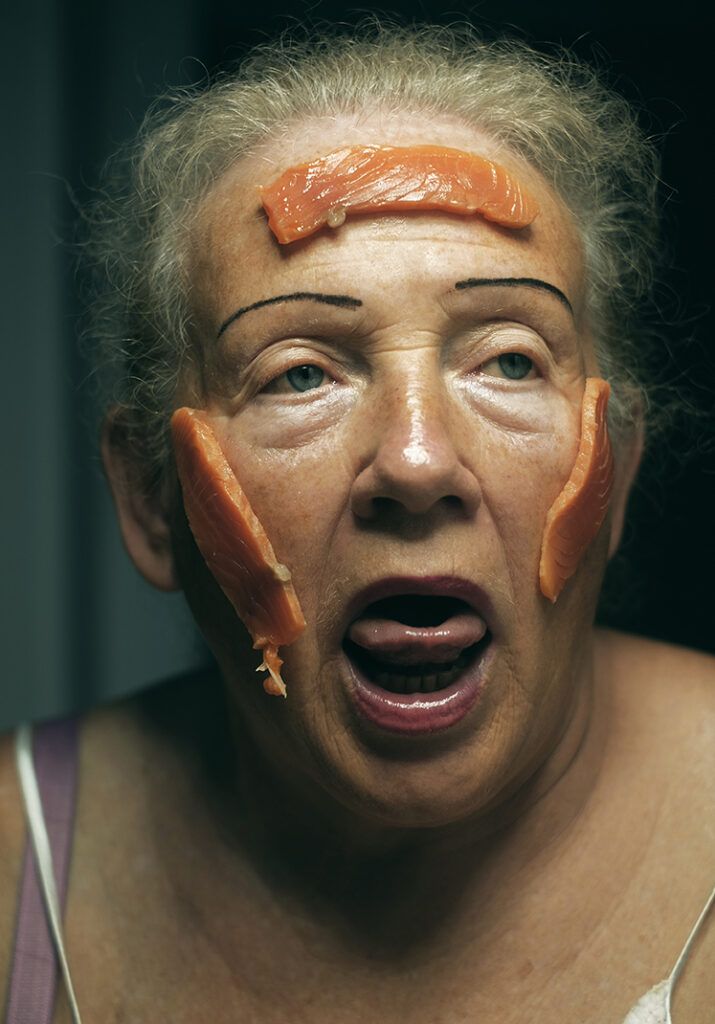
However, my own life in Odessa wasn’t a bed of roses. Since I was a child, I always wanted to escape. Both depressed, my parents were emotionally immature and physically absent. Confused with his sexuality and an orphan, my father drowned his sorrows in liquor, and my narcissistic mother with a fearful-avoidant attachment style was too busy with her own traumas and the inability to feel any type of emotion made her very distant.

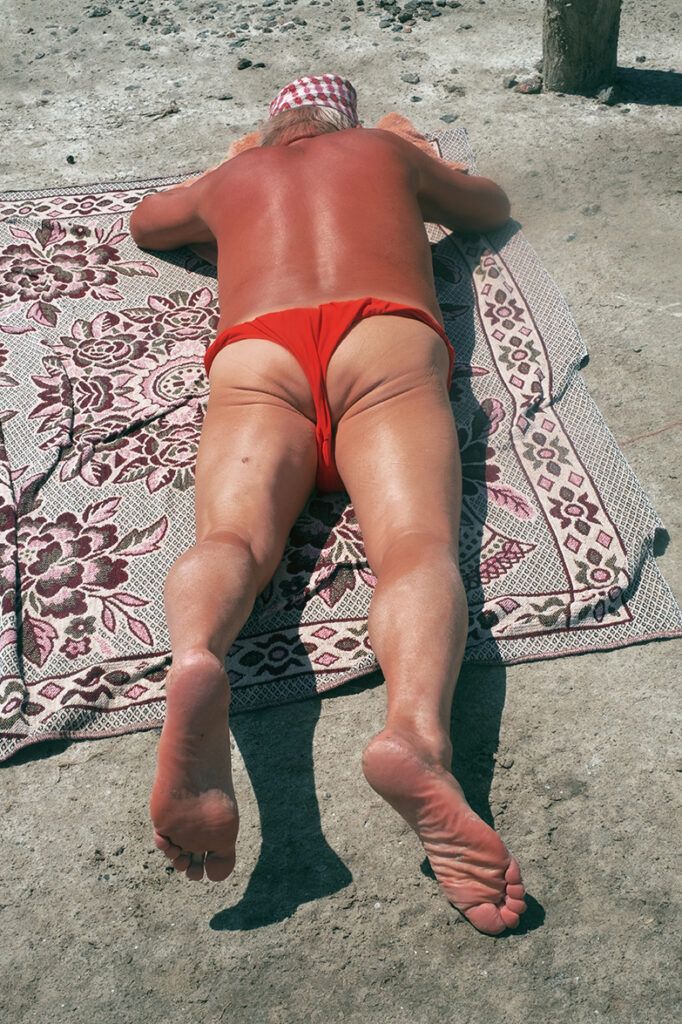

I left Odessa for another country when I was 16. The first photos of ‘Meat, Fish and Aubergine Caviar’ were shot in 2016 when my father got sick and was admitted to the Intensive Care Unit. It made me stay in Odessa for several months taking care of my father and entertaining my forlorn and extremely frightened mother by taking her pictures. I continued the project until 2019, coming to Odessa several times a year until my father was fully recovered and could go back to his routine – exercising on the beach, doing groceries at local open-air markets, indulging in cooking and eating with my mother.

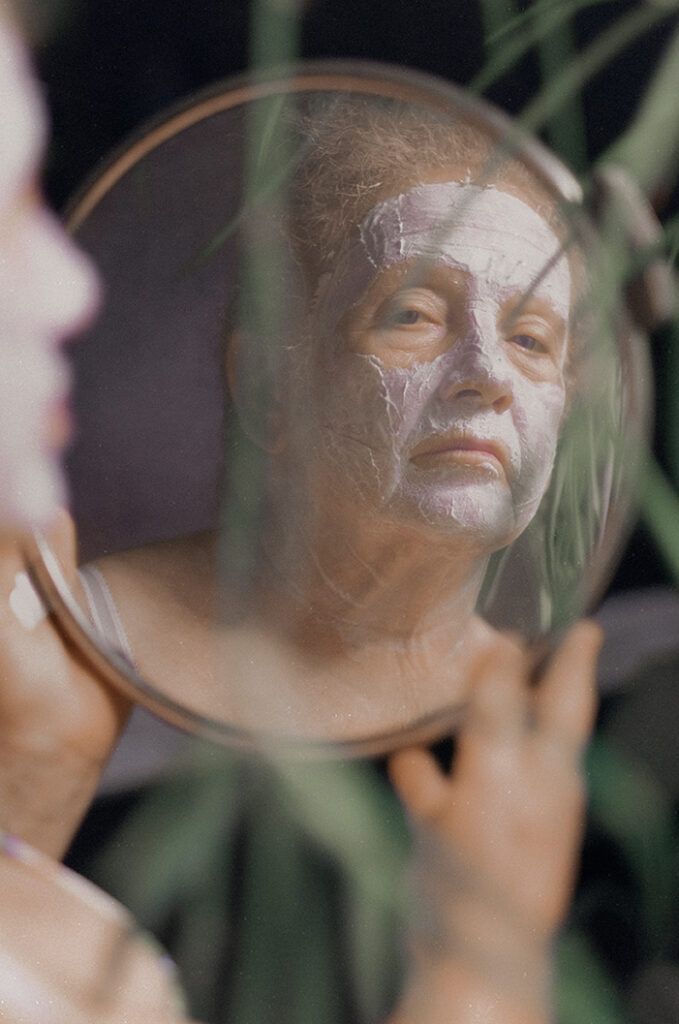
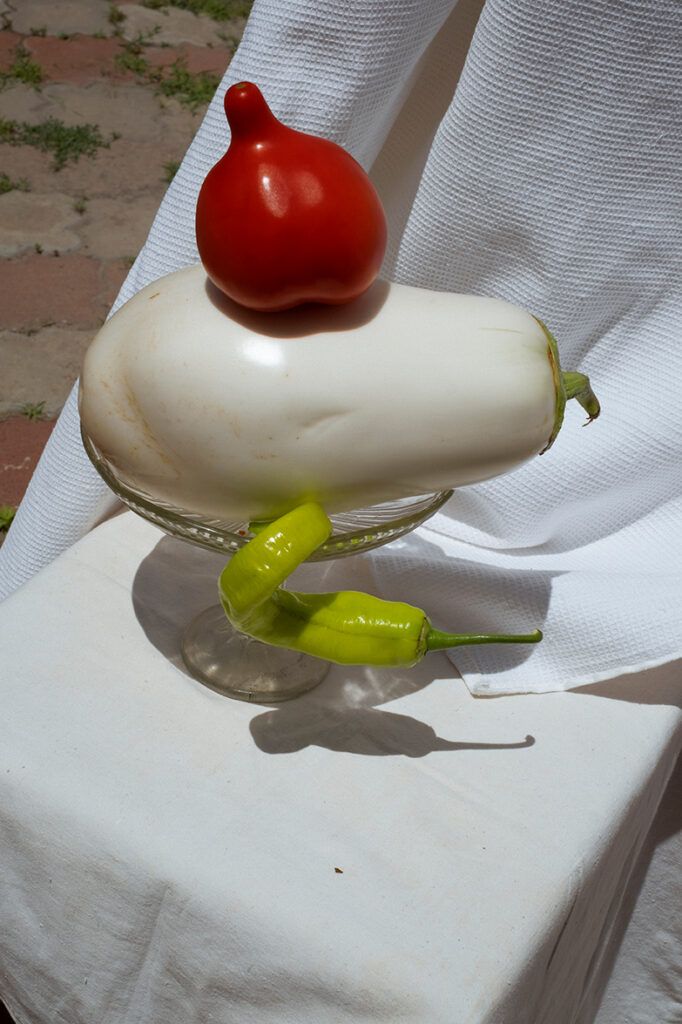
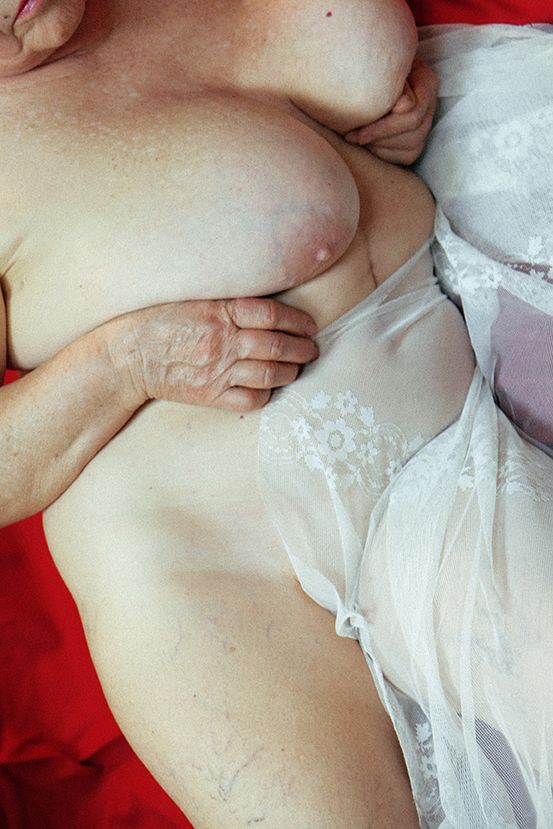

Through the project, photography became a tool of communication and connection with my mum and dad. I created a utopian universe where life is beautiful and I finally have the type of parents I always wanted to have. The series reflects on the country’s and the city’s culture but intrinsically it is a self-portrait of someone wrecked by childhood traumas. Someone who’d rather live in the illusionary Odessa of meat, fish and aubergine caviar.
